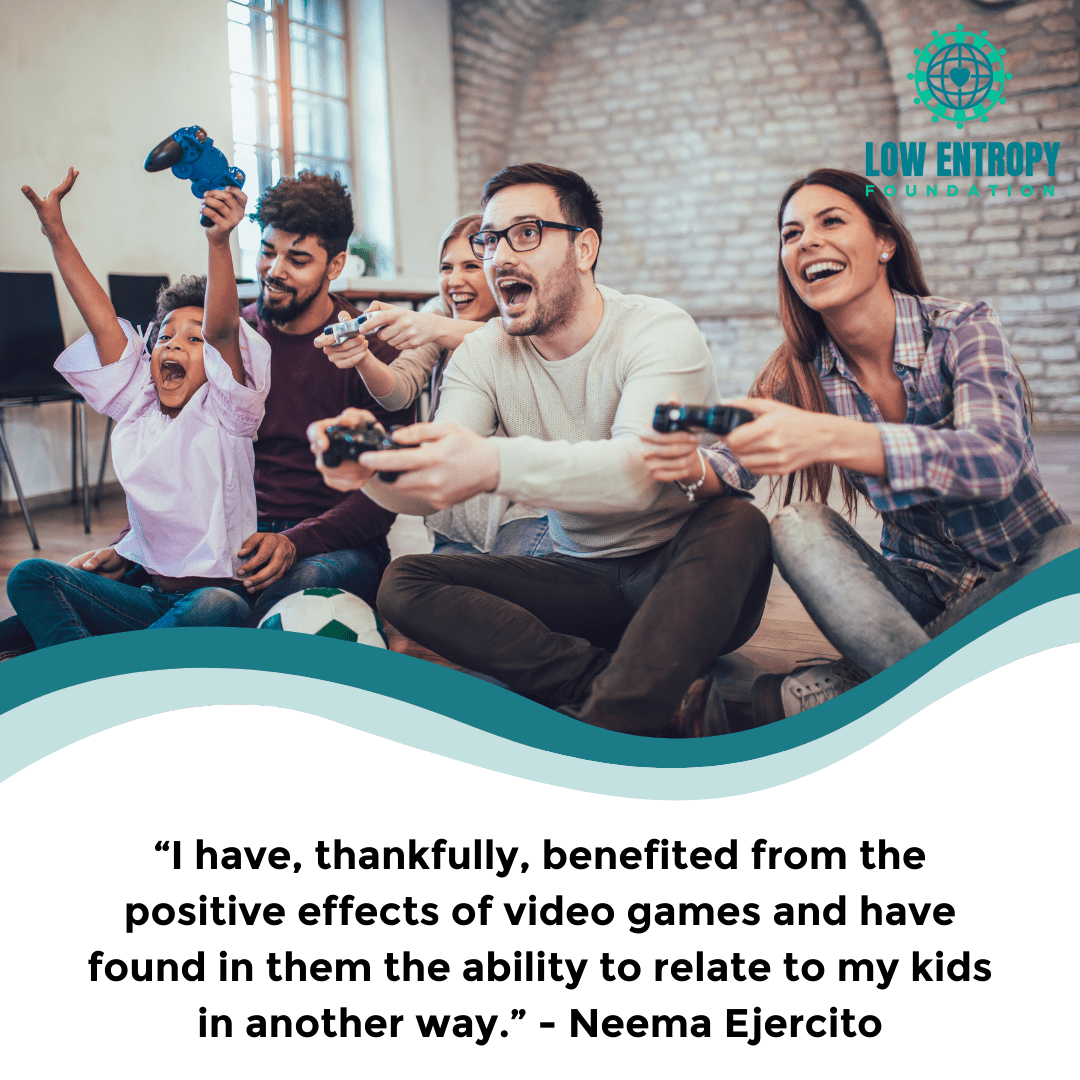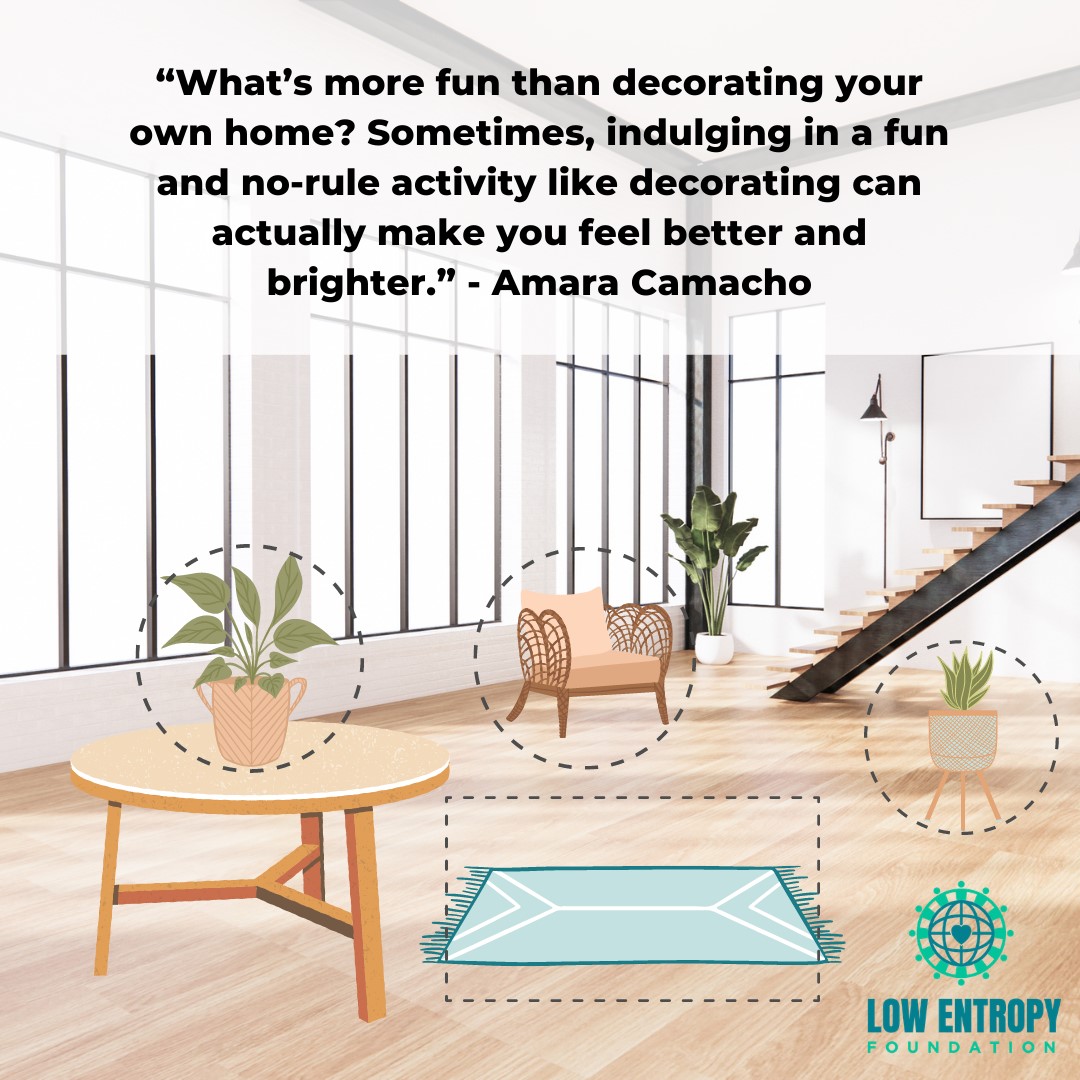Neema Ejercito (she/her/hers), Low Entropy Volunteer Writer
I don’t know how many other parents would say that they are pretty up-to-date with what their kids are playing. As for me, I don’t think it’s a parenting style, more like a me thing. I guess I can thank my youngest brother’s influence on me (yup, we did the role reversal thing way back when) for getting me into video games.
In high school, I remember hours and hours of playing Street Fighter with my brother because no one else in the family would play with him. He’d beat me every time, but I kept playing. Of course, I’d get fed up too, and that’s when he’d say, “Please? Another round?” with begging eyes. I’d acquiesce, only for him to let me win and, once he’d see I was feeling a bit better, beat me again and again before I wanted to call it quits again. And the cycle continued.
I tried different types of games, but the hack-and-slash types were the ones I loved the most. I loved Prince of Persia at a certain point and Where in the World is Carmen Sandiego?, but one of my all-time favourites is still Typing of the Dead (I can hear the voiceover say the title right now, complete with the perfect pauses). Mindless and satisfying. And yes, it definitely fills the nerd void in me. Lately though, my second son introduced me to two games that have been particularly helpful during the pandemic, and of different genres at that.
When my son told me about Persona 5, I was intrigued. When I finished the game, he actually reminded me that I had seen him play it a couple of times and always commented about the art. I still find the visuals amazing, and I grew to love the soundtrack as well. I fell in love with the story too, especially when one of the settings was in an art museum. Oh, and what really, really grabbed my interest was how Japan was portrayed. Again, the art was amazing, especially during the time of the pandemic, and I was able to reminisce about my trips to Japan and somehow felt like I was experiencing them all over again.
To be honest, winning in the game made me feel like a winner in the real world. At a time when everything seemed so uncertain, when the nature of COVID kept changing, when death and sickness was just way too close to home, I loved defeating the bosses, or even when I failed, keeping on trying and trying. I know that it would be easier to win on-screen than to know when I’d get to work out at the gym safely again. The victory over the simulated conflict in the game purged me of the emotional roller coaster I had been feeling, if only for a moment. I also have to admit that I kept playing the game to keep feeling that release.
A friend working in the gaming industry observed that he actually became busier since the pandemic hit because everyone was always online. While part of me celebrated with him (since, hurrah, he was earning more as well!), I realized how games even became more of an escape, especially during the pandemic. It saddened me as well as cheered me up. I was sad to see how much relief we needed but happy that video games were another outlet, when we seemed to be running out of those due to the nature and longevity of COVID.
More recently, my son introduced me to the horror genre through Little Nightmares. Japanese role-playing games like Persona 5 are still within my gaming comfort zone, I would say, but scary ones would not really be my first choice. I’ve tried and liked Silent Hill and Fatal Frame, but I did not finish them. I still cannot get past the first Resident Evil. But finishing Little Nightmares provided that perfect formula of art, story and puzzle for cathartic satisfaction that propelled me from the mire that has become everyday news of dread.
I have personally met a few people who are completely against video games and their influences, and I do understand their perspective. It’s unfortunate when parents don’t understand how much games help our kids though, especially when they don’t play video games and see how much our technology is actually gamified. I have, thankfully, benefited from the positive effects of video games and have found in them the ability to relate to my kids in another way.
—
Neema Ejercito is a professional writer, director and creative writing mentor. Her 3D edutainment series for beginning readers, AlphaBesties, is showing in YouTube Japan and Prairie Kids. When she’s not writing or mentoring, she manages her household with her very supportive husband and three children.








